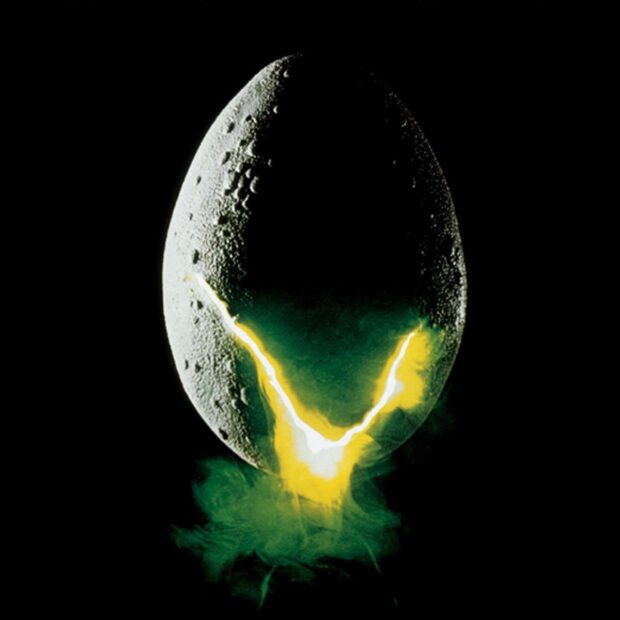Freddy gets a genre-redefining resurrection.
By 1991, Freddy Krueger had all but cemented his place as a horror icon, although that cement had been used to fashion his cinematic tombstone following the critically lambasted but modestly successful Freddy’s Dead: A Final Nightmare. Wes Craven’s New Nightmare brought Freddy Krueger back in a way nobody expected: by breaking the fourth wall and reincarnating him as a force of real-world terror. This metatextual masterpiece marked a daring return for the franchise, pulling it out of the increasingly cartoonish sequels spiral and setting the stage for the ironic, post-modern horror revival that Scream would soon usher in. But New Nightmare wasn’t just Freddy’s return—it was a love letter to the original, honouring the actors who made Elm Street an enduring landmark of horror.
One of those key players is John Saxon. Returning as himself, and as a version of his Nightmare on Elm Street character, Donald Thompson, Saxon’s presence provides a vital emotional and nostalgic weight to the film. He is one of the franchise’s core pillars, alongside Heather Langenkamp and Robert Englund, the only actors to appear in more than two instalments. Saxon’s contribution is often underappreciated – he was, after all, the first name listed in the opening credits of the very first movie; he provided the films with a sense of grounded authority, playing the sceptical cop who’s rationalised away his part in Krueger’s lynching and refuses to believe in Freddy’s return, even as the horrors stack up around him, cursed by his own dark secret and role in Krueger’s earthly demise. In New Nightmare, his role goes beyond that of a by-the-numbers authority figure—here, Saxon slips in and out of his character in a fascinating blur of fiction and reality. As the lines between film and real life begin to dissolve, Saxon’s descent into his character mirrors the film’s central theme: the power of storytelling to shape, and even threaten, our reality, demonstrating the range and subtlety of an actor who is often regarded as something of a journeyman.
The film’s meta-approach is bold and brilliantly ahead of its time. New Nightmare doesn’t just play with Freddy as a character; it plays with the very concept of Freddy. Wes Craven’s decision to have the actors portray versions of themselves—Heather Langenkamp as a horror actress, Robert Englund as a beloved actor, and Saxon as the stoic pseudo-father figure—is more than a clever trick. It’s a way of forcing the audience to confront the impact that horror, as an enduring myth, has on our culture. Freddy isn’t just the monster haunting Elm Street anymore; he’s something much darker, a primal force that feeds on our fear of stories that refuse to die.
Robert Englund’s return as both himself and Freddy is predictably brilliant, but it’s Heather Langenkamp and John Saxon who bring a deeply human, emotional weight to the film. Langenkamp’s struggle to protect her son while being haunted by the role that defined her career is perfectly mirrored by Saxon, whose protective instincts—both as a father and as a former co-star—become tragically blurred with his real-life persona. Saxon’s calm, patriarchal presence is more than just nostalgic; it’s an anchor in a world rapidly losing its grip on reality.
Of course, no discussion of New Nightmare would be complete without acknowledging how it set the stage for the ironic, self-referential horror that would come to define the genre by the late 90s. Wes Craven’s ability to pull the strings of his own creation—commenting on the very franchise that brought him success—was revolutionary. Without New Nightmare, it’s hard to imagine Scream finding its voice so sharply. The film’s exploration of the boundaries between reality and fiction, combined with Freddy’s new, more sinister form, revitalized the character just as he was in danger of becoming too familiar to frighten.
Despite its brilliance, New Nightmare wasn’t fully embraced on its release. It was too cerebral for some, too detached from the formula of the franchise. But over the years, it has rightly earned its place as one of the more unique entries in horror history, one that dared to ask whether the stories we tell can come back to haunt us in ways we never expected.
For John Saxon, this would be his final appearance in the Elm Street franchise, and his performance here is a fitting tribute to the role he helped define. As an authority figure and a protector—both in fiction and in reality—Saxon’s role in the franchise is irreplaceable and invaluable. While Freddy Krueger became the face of the nightmares, it was Saxon who helped ground them in a reality we could all recognize.
In New Nightmare, Freddy may be more terrifying than ever, but it’s the presence of Langenkamp, Englund, and Saxon that reminds us why we fell in love with Elm Street in the first place. It’s not just about the terror of the dream world; it’s about the real world colliding with it. Saxon, ever the stalwart defender of both, proves once again that horror isn’t just about monsters—it’s about the people who fight them.










I have only seen one film in this franchise, but now keen to see all of it after reading about John Saxon’s double role .. should I do these in order!? Thanks for joining us and hope to see you for next year’s fun with an announcement coming soon.
Freddy’s kind of nightmares are not my cup of tea, but it sounds like New Nightmare is a revolutionary meta-twist on the subgenre, and well worth looking up.
Brilliant review of a brilliant film!
You summed up Wes Craven’s New Nightmare and John Saxon‘s role in it perfectly!!
Excellent review of a truly fascinating sequel. It’s a brilliant meditation on the horror movie genre. Kudos to Craven for resisting the temptation of doing more of the same. And congrats to you for explaining so well why this is such an important movie in the development of the horror movie.